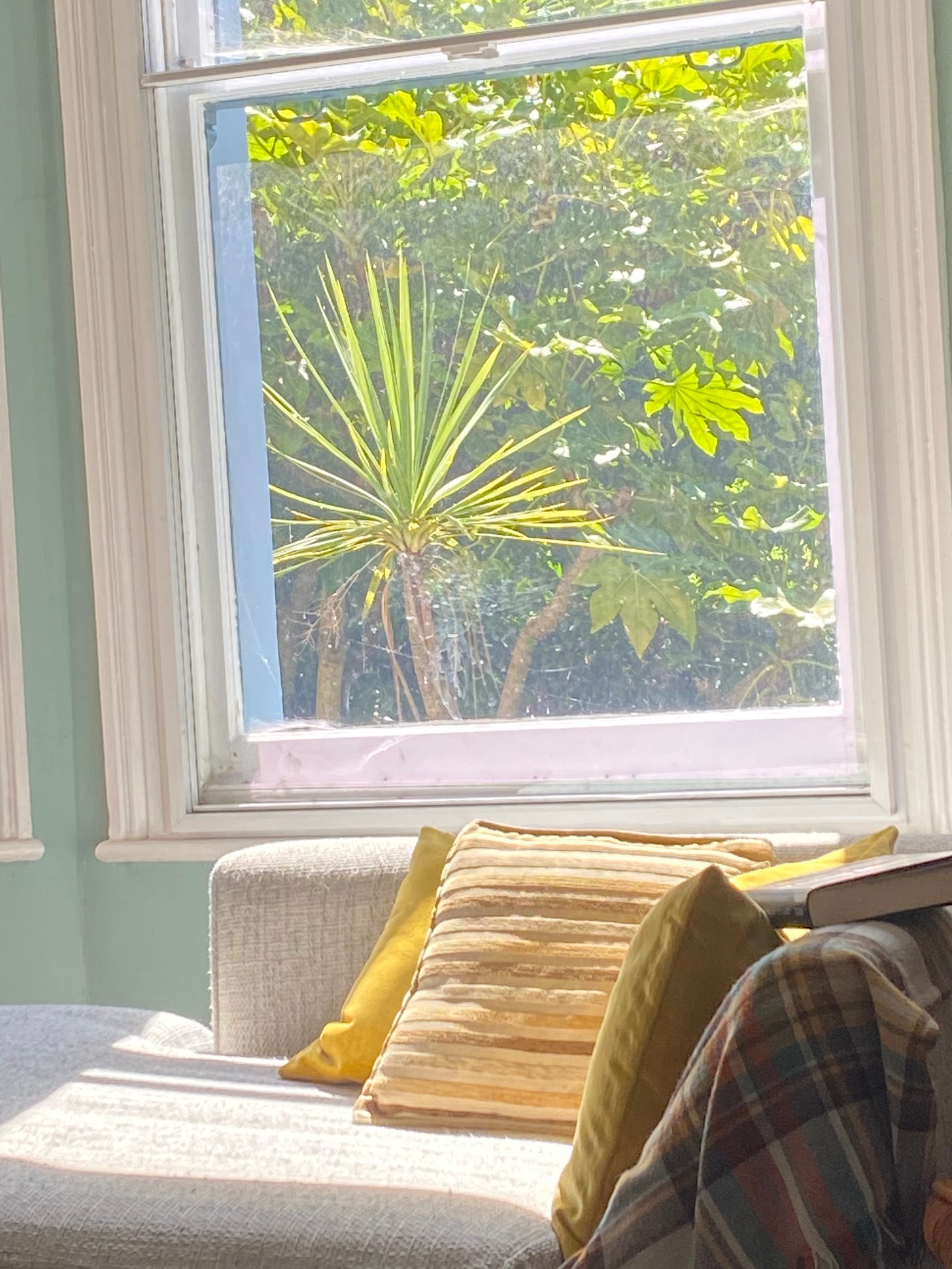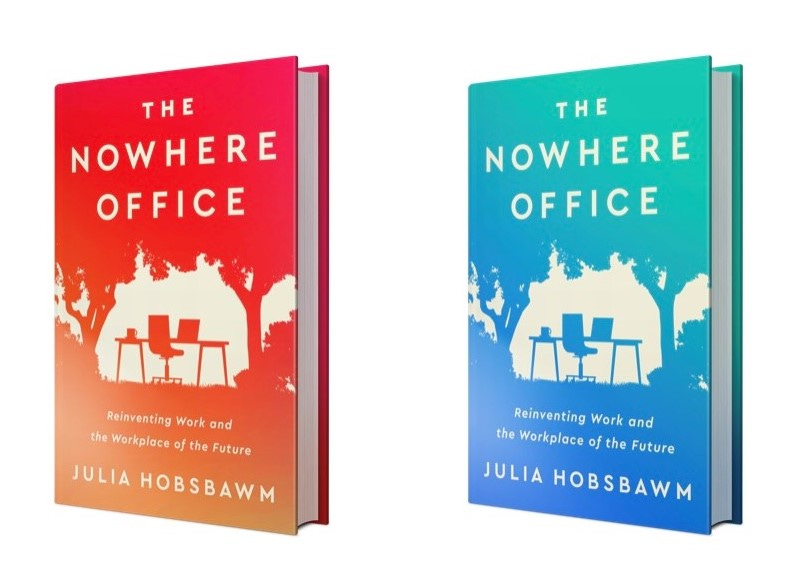The Great Re-Evaluation
We are all in 'Carpe Diem' mode now
London. 19 July 2022
Hello from a blisteringly sunny London Living Room (mine). It’s a heatwave, and even the managers most resistant to WFH are suggesting people do not travel but instead take advantage of the billions spent on tech to enable exactly this. I have had one Zoom already and shall be on a Teams call this afternoon.
But this is old news. No-one wants the commute any more anyway. That much is abundantly clear. Later this week, as the weather is due to break, I will venture out in London to participate in an event with King’s College London’s Policy Centre and Business School to discuss their fascinating data on just how widespread the rejection of the commute has become: for instance, only 16% feel working more days in the Capital is good, compared to 58% who don’t.
It’s taking place on Thursday 21st July in the evening (London) You can join in person or online.
But let me be equally clear: Frontline workers who need to be physically present to (for instance) teach, care, work machinery or be present in settings requiring in-situ presence cannot enjoy the benefits of hybrid at all: The heatwaves underscore the inequality of Hybrid Haves and Hybrid Have-Nots. One of my kids is a sous-chef in a restaurant. He gets the sweltering bus because he has to. Another is a part-time carer. He gets on the tube. They have to show up for work, travelling to be there and being somewhere: it’s not called an office but it is a place of work.
The Amazon delivery driver and the post office delivery worker do not choose this heat, but they endure it. The paramedics who came out to assess my 90 year old mother not once but twice in a matter of days neither complained nor discussed work-life balance.
AND YET AND BUT
The rest of the working world - the knowledge working, office-working, white collar working world (as described pre-pandemic) are changing and they are not going back to old habits and desires and they are flexing their desire for flexibility. Everywhere you look.
What everyone has called The Great Resignation is in fact something else entirely, and very widespread.
The lyrics of Beyonce’s new track ‘Break My Soul’ (which I’m playing constantly, and renaming the anthem of The Nowhere Office) articulates this massive shift.
I just fell in love And I just quit my jobI'm gonna find new driveDamn, they work me so damn hardWork by nine, then off past fiveAnd they work my nervesThat's why I cannot sleep at night
I'm lookin' for motivationI'm lookin' for a new foundation, yeahAnd I'm on that new vibrationI'm buildin' my own foundation
Songwriters: Adam Pigott / Allen George / Beyoncé Knowles / Christopher Stewart / Fred McFarlane / Freddie Ross / Shawn Carter / Terius Nash
BREAK MY SOUL lyrics © DistroKid
It is what I call The Great Re-Evaluation, a point I made to The Guardian about the way ambition is being recast to incorporate work-life balance. Purpose is the new kid on the block. The pandemic has connected every generation for all sorts of reasons, to whether they see a point, a value, to the trade offs of work - and many are re-evaluating and doing so with their feet. The pandemic heightened and crystallised many of these latent trends into focus, which my book and podcast covers in depth.
This trend of reluctance to commute and new pathways of behaviour around work is being replicated globally too: Less than half of mid-market CEO’s in the US have returned to offices full-time, with 25% saying they fully intend to take advantage of hybrid schedules.
Covid’s return with new variants is entrenching The Great Re-Evaluation. The BA.5 variant is 15% up in America on a week ago: daily averages of new cases stand at 130,000 and rising. I had it a second time a fortnight ago, my 90 year old mother has it. London where I live is awash with it. The WHO Covid Dashboard is truly shocking
This means that over an above what managers want and workers want, the sheer disruption being played out in our lives and public services will continue as new variants infect, re-infect, and vaccines play catch-up.
This in turn will impact our attitudes to why and where and when we work: If you or someone you live with catches Covid (again) you have to either not work, or work through it, and the known exhausting effects of this particular disease mean that inevitably it triggers more thoughts of re-evaluation than in the pre-Covid age of everyone just getting on with it, unthinkingly: Illness wasn’t acceptable pre-Covid, let’s not forget.
An additional factor from Covid’s continuation - and the heatwaves around Europe and the UK in particular have accelerated this is - is that the penny has finally dropped that ventilation is a key issue and by no means every building or transport system has sufficient ventilation : that includes restaurants and bars, clubs, buses and airports. I am constantly surprised that not everyone knows what a HEPA filter even is.
WHAT THIS MEANS FOR WORKING PATTERNS
What this means is that the working world is changing to adapt to the way human worker beings are now changing. The relative simplicity of the ‘Fully Remote’ era of lockdowns - when the world kept turning thanks to both selfless frontline workers and technology-enabled WFH was then replaced by ‘Fully Hybrid’ - a period of time up until relatively recently when essentially random 3-2 models (rather like the 5-2 Diet) were imposed as a standardised model to try and stem the flow of resigning or de-motivated workers who wanted to work differently.
FULLY CUSTOMISED WORK
I shall write more on this (and it is forming the basis of the consulting I’m doing for a number of large organisations and institutions about how they make hybrid work in practice) but essentially I’d like to leave you with this thought:
The old top-down, standardised, one-size-fits-all models of work won’t work. Technology has unleashed personalisation to the degree that we expect it in our lives. The pandemic means we’ve seen new ways of working are possible.
So instead of trying to control the way our workers work in the knowledge economy we need to think and act very differently to get the best productivity, to retain corporate culture in environments which include offices but in which offices are no longer the central story.
We need to be Fully Customised in how we think, shape, trial, develop, patterns, workplace by workplace, team by team, city by city until The Nowhere Office becomes not something to resist, or deny, but something to accept, embrace and - like Covid - learn to live with.
Do let me know your thoughts: julia@thefullyconnected.com or follow me @juliahobsbawm on Twitter or @thenowhereoffi1 on Twitter. Do share any interesting data with me too please.
Thank you for reading.
ps. Do have a listen to the latest episode of The Nowhere Office podcast, all about ‘The Solopreneur’.






